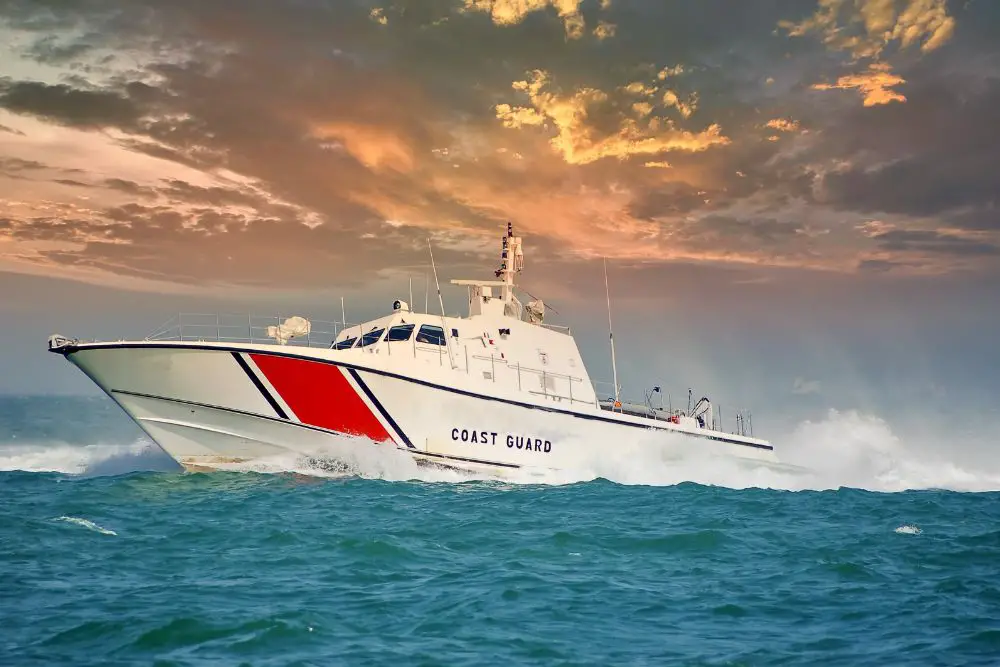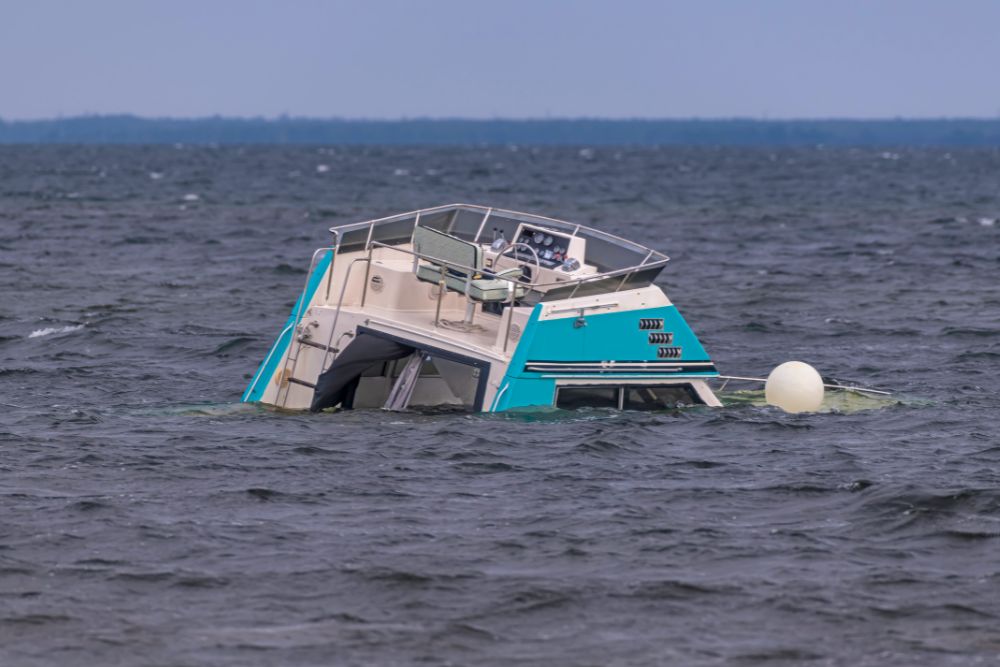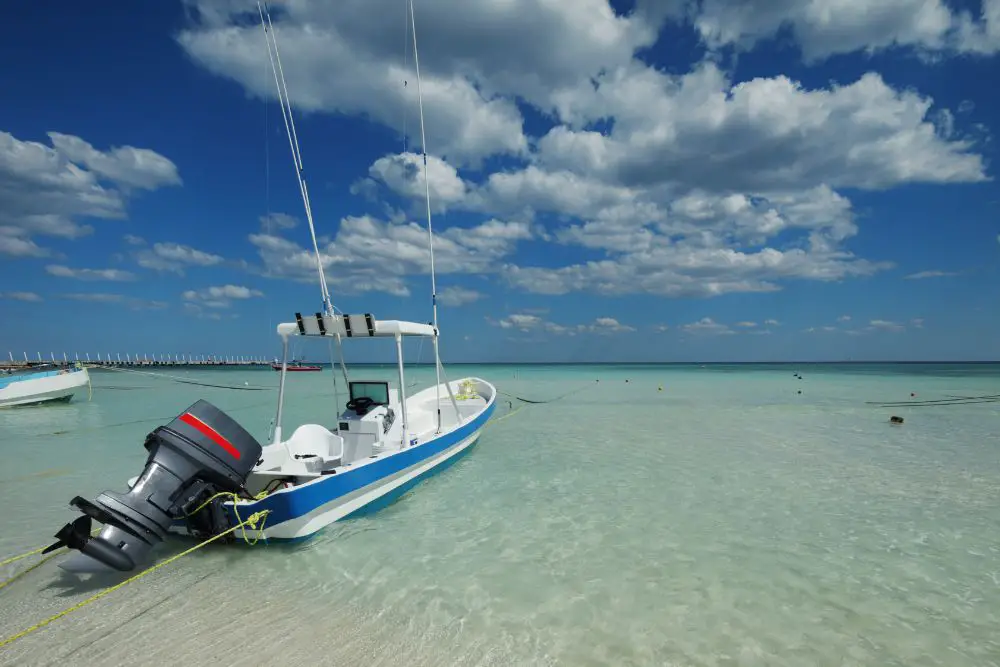A capsized boat is a frightening experience, whether you are offshore in the middle of the ocean or close to shore in more protected waters. But if your boat capsizes and remains afloat, there are steps you can take to ensure your safety and the safety of your crew.
The first step is to assess the situation and determine if anyone on board is injured. If there are any injuries, call for medical help immediately. Once you have determined that everyone on board is safe and accounted for, it’s time to start thinking about righting the boat.
Get everyone off the boat and onto a nearby vessel or land if possible. This will help lighten the load and make it easier to right the boat. If you can’t get everyone off the boat, don’t worry – you’ll just have to work a little harder.
Once you have determined that everyone is safe and accounted for, it’s time to start thinking about righting the boat. Get everyone off the boat and onto a nearby vessel or land if possible. This will help lighten the load and make it easier to right the boat.
You can use a few different techniques to right a capsized boat, but the most important thing is to remain calm and think clearly to execute whichever method you decide on effectively.
Stay Out of the Water
Many boaters are unaware of what to do if their boat capsizes but remain afloat. No one wants to think about their boat capsizing, but it’s important to be prepared for any eventuality.
If your boat does capsize, the most important thing to remember is to stay out of the water. Most deaths that occur in boating accidents result from drowning, so you must avoid getting into the water if at all possible. Here are some tips for staying safe if your boat capsizes.
Get Out of the Boat Quickly and Climb onto the Hull
As soon as your boat capsizes, you need to get out of it as quickly as possible and climb onto the hull. It can be difficult to climb out of a small opening while the boat is overturned, so it’s important to be aware of where the exits are before an accident happens. You should also practice getting out of the boat in calm waters so that you’re prepared in case of an emergency. If there are other people on board, make sure everyone gets out before you start climbing onto the hull.
Wait for Help to Arrive
Once you’re out of the water and on the hull, your main priority should be to wait for help to arrive. If you have a radio or a phone, try to call for help and give your location. If you don’t have either of those things, wave your arms and shout for help from anyone who might be nearby. It’s important to stay calm and wait for rescue rather than trying to swim for shore, as this will only exhaust you and increase your chances of drowning.
Keep Yourself Warm
If you’re in cold waters, it’s also important to keep yourself warm until help arrives. Wrap yourself in a tarp or blanket, if you have one, or anything else that will help insulate you from the cold. Huddle with other people on board and try to generate body heat by huddling together. All of these things will help increase your chances of survival until help arrives.
The Dangers of Cold Water Shock
One of the biggest dangers of being in cold water is cold water shock. Cold water shock occurs when your body is suddenly exposed to cold water, causing an involuntary gasp reflex. This reflex can cause you to inhale water, leading to drowning. In addition, cold water shock can cause your blood pressure and heart rate to spike, potentially leading to a heart attack or stroke.
How To Survive Cold Water Shock
If you find yourself in cold water, the best thing you can do is try to calm yourself down and keep your head above water until help arrives. Treading water or floating on your back with your head tilted back and mouth closed will help you avoid ingesting any water. If possible, remove any clothing that is constricting or weighing you down so that you can swim more easily. And finally, try to signal for help by waving your arms or using a flare gun if you have one.
Mentality
No matter how experienced you are, the thought of your boat capsizing can be terrifying. But if it does happen, it’s important to stay calm and take action quickly in order to minimize any damage and get back to shore safely. Here’s what you need to do if your boat capsizes but remains afloat.
First, assess the situation and see if anyone is injured. If so, provide first aid and call for help immediately. If everyone is okay, the next step is to secure the boat. Depending on your boat type, this may involve flipping it over or righting it. Once the boat is stable, begin bailing out any water that has entered.
Next, check for any damage that may have occurred during the capsize. Ensure all hatches and compartments are secure so no more water can enter the boat. Once you’re sure the boat is watertight, you can start thinking about how to get back to shore.
Use the boat’s motor to make your way back to land if possible. You’ll need to paddle if the motor isn’t working or there isn’t one. Paddling in a straight line towards shore is usually the best option, but if currents or other factors make that impractical, look for a nearby body of land like an island or sandbar where you can beach the boat until help arrives.

Other Emergency Means
The first thing you need to do is assess the situation. Are you injured? Is anyone else on the boat with you? Once you’ve taken stock of your situation, it’s time to start thinking about how to get out of this dangerous predicament.
One option is to swim towards the boat and try to climb back on board. This can be difficult, especially if the boat is large or if you’re not a strong swimmer. If you’re able to make it back on board, congrats! You’re now in a much safer position.
If swimming isn’t an option, or if you’re unable to make it back on board, there are still other things you can do. One is to try to signal for help. If there are other boats around, they may be able to see you and come to your aid. Alternatively, if you have a phone or radio on board, you can use that to call for help.
In Conclusion:
Capsizing is every boater’s worst nightmare – but if you find yourself in this situation, there are some things you can do to increase your chances of survival. First and foremost, stay out of the water if at all possible. And if you must enter the water, try to hold onto something that will help keep you afloat. Secondly, stay calm – panicking will only make the situation worse. And finally, try to call for help using a radio or cell phone, or attract attention by waving your arms or blowing a whistle. Remember – help is on the way!



